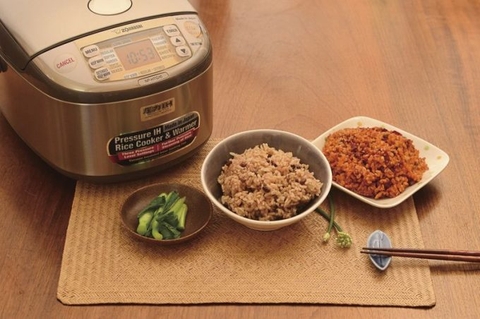7 Essential Factors to Consider When Buying a Quality Microwave Oven
Choosing the right microwave oven can be a daunting task, given the plethora of models available in the market. A microwave is an indispensable appliance in modern kitchens, offering convenience and speed in cooking and reheating food. However, not all microwaves are created equal. To ensure you invest in a quality appliance that meets your needs and lasts for years, consider these seven essential factors:
1. Size and Capacity
The size of your kitchen and your typical cooking needs should dictate the microwave's capacity. Compact models are ideal for small kitchens or individuals, while larger families may require a full-sized microwave with a capacity of 1.5 cubic feet or more. Consider the size of dishes you typically use to ensure they fit comfortably inside.
2. Power Level
Microwave power is measured in watts. Higher wattage generally translates to faster cooking times. A microwave with 1000 watts or more is considered high-powered and suitable for most cooking tasks. Lower wattage models may suffice for simple reheating but will take longer to cook food thoroughly. Variable power settings are also essential for delicate tasks like defrosting.
3. Type of Microwave
There are several types of microwaves, each suited to different needs:
- Countertop Microwaves: These are the most common and affordable type, offering flexibility and ease of installation.
- Over-the-Range Microwaves: These are installed above the cooktop, saving counter space and often including a built-in range hood.
- Built-In Microwaves: These are integrated into cabinetry for a seamless, custom look.
- Convection Microwaves: These combine microwave and convection cooking, offering versatility and oven-like results.
4. Features and Functionality
Consider the features that are important to you. Some microwaves offer pre-programmed settings for specific foods, sensor cooking technology that automatically adjusts cooking time based on moisture levels, and turntable options for even heating. Other features include child safety locks, kitchen timers, and express cook buttons.
5. User Interface and Controls
A user-friendly interface is crucial for ease of use. Look for clear, intuitive controls and a well-lit display. Touchpad controls are sleek and easy to clean, while dial controls offer a more tactile experience. Ensure the buttons are responsive and the display is easy to read from a distance.
6. Interior Material and Construction
The interior material of the microwave affects its durability and ease of cleaning. Stainless steel interiors are durable, rust-resistant, and easy to wipe clean. Enamel interiors are also common and offer good durability. Avoid microwaves with plastic interiors, as they can stain and absorb odors over time.
7. Brand Reputation and Warranty
Choose a microwave from a reputable brand known for quality and reliability. Read online reviews and check consumer reports to get an idea of the brand's reputation. A good warranty provides peace of mind and protects you against potential defects or malfunctions. Look for a warranty of at least one year on parts and labor.
By considering these seven essential factors, you can confidently choose a quality microwave oven that meets your needs, fits your budget, and provides years of reliable service. Happy cooking!





























































Comment
There are currently no comments for this article.
Write a comment